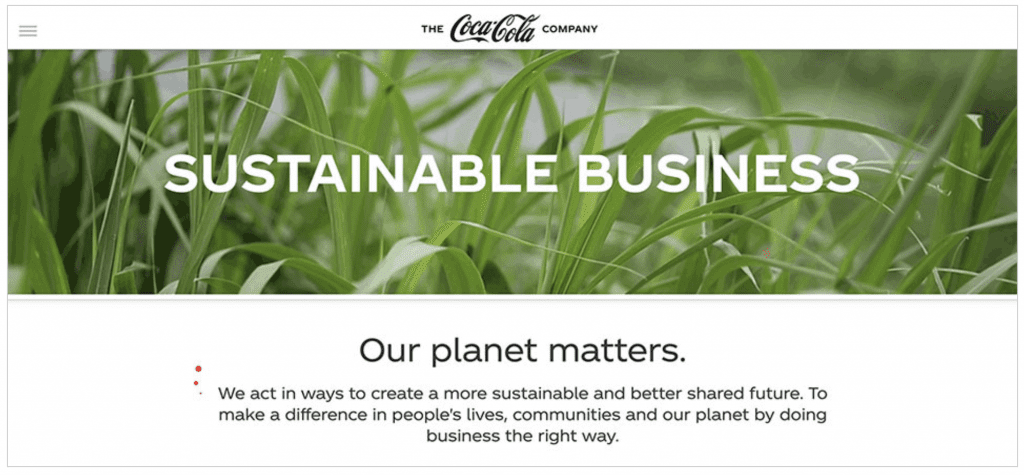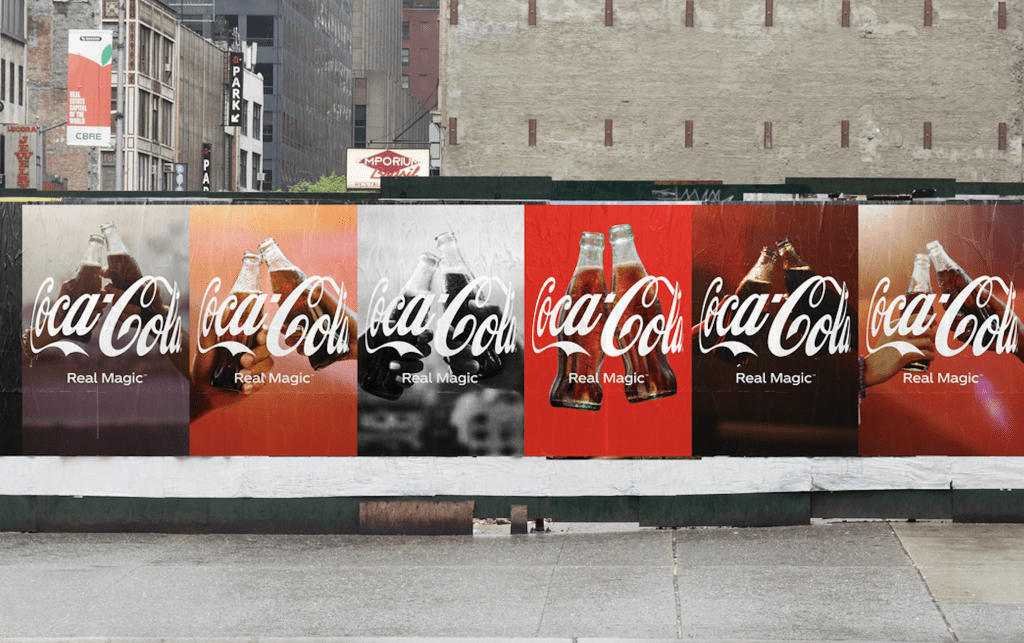Coca-Cola Company has escaped the false advertising lawsuit waged against it by an environmental activist group, which accused the Atlanta-headquartered beverage giant of greenwashing by marketing itself as “a sustainable and environmentally friendly company, despite being one of the largest contributors of plastic pollution in the world.” In the complaint that it filed with the Superior Court in Washington, D.C. in June 2021, Earth Island Institute (“EII”) alleged that Coca-Cola made an array of marketing statements on its social media accounts and its website, as well as in print and TV ad campaigns, that were “false and deceptive” under the D.C. Consumer Protection Procedures Act (“CPPA”), a state statute that prohibits a variety of deceptive business practices.
Specifically, EII alleged that Coca-Cola’s marketing is “false and deceptive because the company portrays itself as ‘sustainable’ and committed to reducing plastic pollution,” while simultaneously polluting “more than any other beverage company and actively working to prevent effective recycling measures in the U.S.” EII pointed to the following as examples of some of the problematic claims made by Coca-Cola: (1) “We act in ways to create a more sustainable and better shared future”; (2) “Coca-Cola plans to make 100% of our packaging recyclable globally by 2025”; (3) “Part of our sustainability plan is to help collect and recycle a bottle or can for every one we sell globally by 2030”; and (4) “We’re using our leadership to achieve positive change in the world and build a more sustainable future for our communities and our planet.”
Given that Coca-Cola’s ESG-centric advertising “misrepresents, tends to mislead, and omits facts regarding the characteristics, standard, quality, and grade of its business practices, and the products and services it sells,” EII argued that the company was running afoul of the CCPA.

Fast forward to November 2022 and Judge Maurice A. Ross of the D.C. Superior Court tossed out EII’s case on a few key bases …
Merely aspirational claims – Primarily, the court held that an array of Coca-Cola’s claims are “general, aspiration corporate ethos” statements that do not include any “promises or measurable data points” that can be proven to be inaccurate. For instance, the court points to forward-looking phrases – such as “a more sustainable and better shaped future,” “a focus of ours,” “a more sustainable future for our communities and our planet,” “help develop more effective recycling systems,” and “committed to creating” – as examples of statements that are not actionable from a false advertising perspective.
While Coca-Cola’s claims “point to a general theme of sustainability and corporate improvement, there is not a measurable standard to apply as to whether or not [Coca-Cola] has met these general goals,” the court stated, finding that these statements “cannot successfully create a valid claim under the [CPPA] until they have been found to be inaccurate or misleading.”
As for claims that are more specific, such as Coca-Cola’s statement that “part of [its] sustainability plan is to help collect and recycle a bottle or can for every one we sell globally by 2030,” the court was still not convinced. Such a claim might be able to be verified come 2030, but even then, Judge Ross stated that the company’s use of the word “help” in the claim “muddles the promise such that the enforceability, even in 2030, appears to be somewhat uncertain.”
Claims not listed on a “label or [tied to a] product” – Looking beyond the aspirational nature of most of the claims, the court also sided with Coca-Cola on the basis that the allegedly misleading ESG claims were presented separately from its actual offerings. This is significant, according to the court, which asserted that in accordance with the CPPA, “Corporate ethos, hopes, and philosophies, represented by statements in various corporate communication, but not on the product label cannot be considered as part of the product.”
Unlikely to mislead a reasonable consumer – On a final point, the court stated that while the CPPA prohibits parties from making misrepresentations “as to a material fact that have a tendency to mislead” reasonable consumers, EII falls short here, as it presented “a bungle of different statements taken from various documents at different times.’” By “cherrypick[ing]” statements from various publication sources to make its case against Coca-Cola, the court found that EII failed to show that Cola-Cola created “a general impression” that would deceive consumers.
The Big Picture
Reflecting on the outcome of the case, there are takeaways for brands across industries. Duane Morris’s John Simpson says that “the court reached the common-sense result that aspirational claims about sustainability and the environment that reflect ‘corporate ethos, hopes, and philosophies’ are not the stuff that a valid consumer fraud claim is made of.” This may serve as “a blow to aggressive greenwashing claims,” he states, noting that the case could be an important precedent going forward – and thus, a blow to plaintiffs, especially given that the CPPA is considered to be “very pro-consumer legislation, and D.C. is widely regarded as a plaintiff friendly forum.”
Frankfurt Kurnit Klein & Selz PC’s Jordyn Milewski noted that in tossing out EII’s case, the court suggests that “environmental aspirational claims – even those tied to specific measurement attributes – [are] not necessarily sufficient to state a claim” under the CPPA. Not without nuance, Milewski contends that “advertisers should also be mindful that claims may be looked at differently in different forums.”
She points to a recent matter that centered on an Everlane ad as one that went the other way. The apparel company came under fire last year with the National Advertising Division (“NAD”) in connection with environmental benefit claims, including ones in which it advertised the dyes that it uses as “safer for the environment.” The NAD held that “even if the message of sustainability is merely aspirational, the advertising claim is, nevertheless, one that requires substantiation.”
The takeaway for brands in light of potentially conflicting outcomes, according to Milewski, the outcomes are commonly case and venue-specific, and thus, “context is key.”
The case is Earth Island Institute v. Coca-Cola Co., 2021-CA-001846 (D.C. Super. Ct.)











